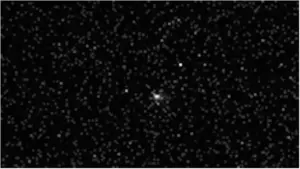CVE Alert: CVE-2025-10951 – geyang – ml-logger
CVE-2025-10951
A vulnerability was identified in geyang ml-logger up to acf255bade5be6ad88d90735c8367b28cbe3a743. Affected by this vulnerability is the function log_handler of the file ml_logger/server.py. Such manipulation of the argument File leads to path traversal. It is possible to launch the attack remotely. The exploit is publicly available and might be used. This product takes the approach of rolling releases to provide continious delivery. Therefore, version details for affected and updated releases are not available.
AI Summary Analysis
Risk verdict
High risk: unauthenticated remote path traversal with publicly available exploit; exposure should be treated as urgent if reachable from the internet.
Why this matters
Attackers can read arbitrary files from the host, potentially exposing credentials, configs or other sensitive data, or disrupt/log access. The vendor’s rolling-release approach means explicit versioned fixes may be unclear or slow to arrive, increasing the window of opportunity for exploitation.
Most likely attack path
No authentication or user interaction required; attacker can skein a crafted request to the vulnerable endpoint to manipulate a file parameter and traverse the filesystem. Low attacker effort and no privileges required heighten the chance of discovery and use, with potential impact across confidentiality, integrity and availability at the affected host.
Who is most exposed
Any deployment exposing the logging service endpoint to the internet or poorly segmented networks—common in cloud-native or containerised setups, CI/CD pipelines, or development/testing environments—presents the greatest risk.
Detection ideas
- Alerts for requests containing ../ or absolute paths targeting the file path parameter.
- Unusual access patterns: spikes in access to the endpoint from external IPs with path traversal signatures.
- Logs showing failed/odd file-path attempts or CTI IOCs related to known PoC activity.
- Increased error responses (400/500) linked to file-path manipulation attempts.
- Uncommon directory reads or file listings following a request to the endpoint.
Mitigation and prioritisation
- Apply a patch/upgrade when a fixed release is available; implement strict input validation on the file path (deny traversal sequences; canonicalise and constrain to safe directories).
- Implement WAF or API gateway rules to block path traversal patterns and enforce allowlists for the endpoint.
- Restrict network exposure: apply network ACLs, put behind authentication, or isolate the logging service from public networks.
- Add runtime mitigations: disable or tightly-scoped access to the file system paths used by the endpoint; enable robust monitoring and alerting.
- Change-management: schedule an urgent patch window; test compatibility in a staging environment; coordinate with deployment teams to avoid service disruption.
A considerable amount of time and effort goes into maintaining this website, creating backend automation and creating new features and content for you to make actionable intelligence decisions. Everyone that supports the site helps enable new functionality.
If you like the site, please support us on “Patreon” or “Buy Me A Coffee” using the buttons below
To keep up to date follow us on the below channels.



![[DRAGONFORCE] - Ransomware Victim: GB Mail 4 image](https://www.redpacketsecurity.com/wp-content/uploads/2024/09/image-300x300.png)
